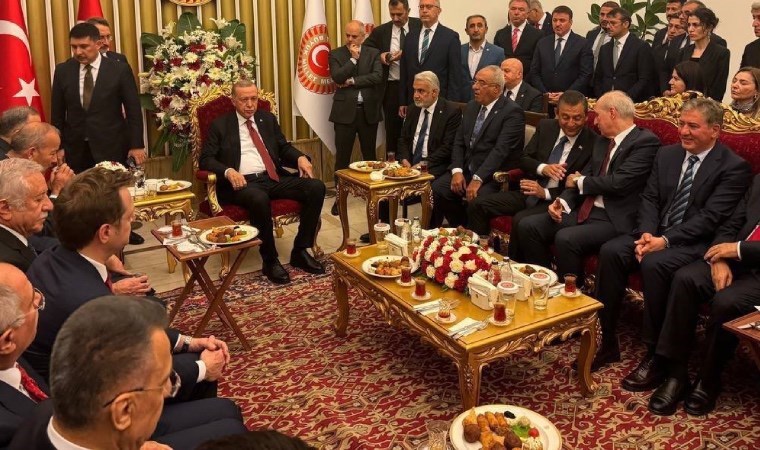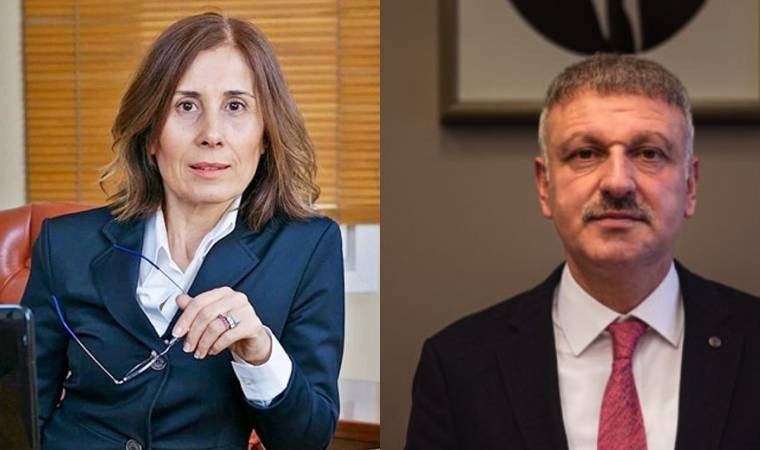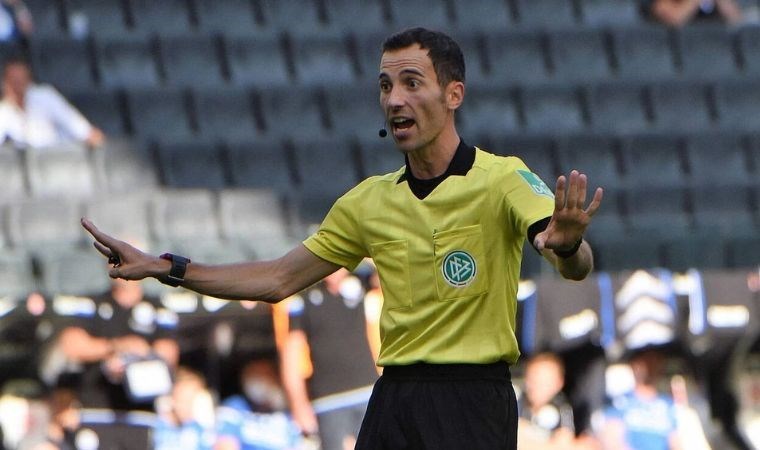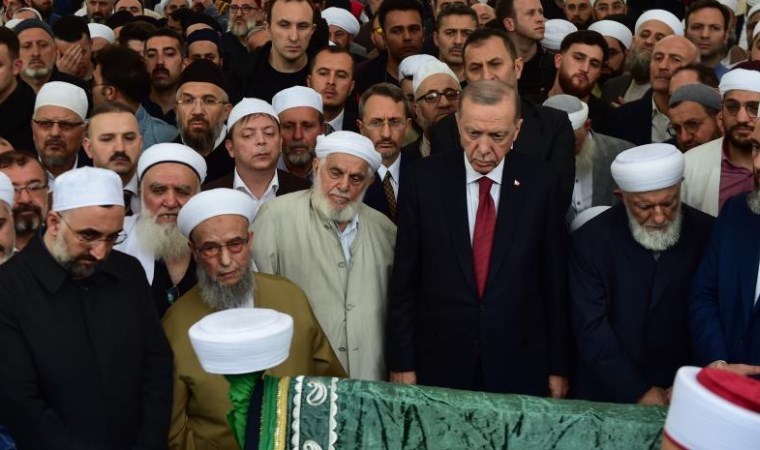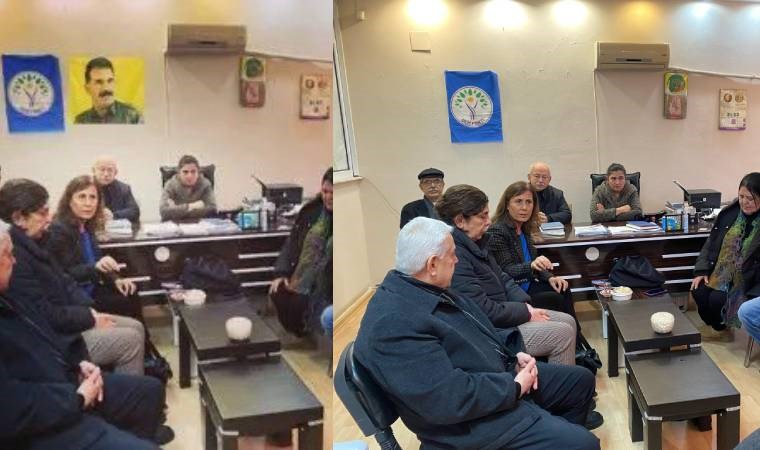Cumhuriyet newspaper’s Reader Representative Güray Öz: Our minds were on the run and we were on the outside every day
Cumhuriyet newspaper’s Reader Representative Güray Öz speaks about his nine months in detention.

Erdem Gül
Güray Öz was the newspaper’s ombudsman at the time he was detained. Öz is from the generation that also felt the wrath of 12 March and 12 September. Silivri through Öz’s eyes:
- I spent one month in detention on 12 March: I was a young law student at the time of the 12 March coup. I saw my name on the list of the wanted after the coup. I was detained following three days as a compulsory ‘guest’ at Branch 1 of the notorious Sansaryan Building and five days in the Selimiye Barracks. They brought me before a military court after I had spent one month in Maltepe Military Prison. They sentenced me to one month for participating in a protest in front of the Provincial Governate Building on the day my friend Vedat Demircioğlu was killed, and let me go. Then they launched fresh proceedings against me. That case saw me being prosecuted along with such famous names from our literary world as Sabahattin Eyüboğlu, Azra Erhat and Magdelana Rufer. The case was abated under a pardon in 1974.
- I was on the wanted list on 12 September: There were fairly handsome-looking – my hair had not fallen out in those days – photographs of me on street posters on 12 September, too. I was able to return to the country in 1993 following a long period in exile.
This case is a sham: The Cumhuriyet trial is a greater sham than the previous trials. In those years the military courts at least tried to be more serious and in particular the 12 March and 12 September courts were very inexperienced in political trials. But they were vengeful. They had no toleration for patriotic youth. They were designed to execute and kill rather than hold trials. This is how the Mahirs, İbrahims and Denizes were killed. 12 September eliminated dozens of youths through torture, on the street and on the gallows. Their counterparts today, conversely, try to get the job done with vacuous indictments under a fait accompli logic. In fact, politics seems to be reflected unwaveringly onto prosecutors. There remains no endeavour to comply even if at least formally with the rules of law.
I was also tried by the Gulenists: In the previous period, that is in the political rulership’s special jurisdiction courts, I was tried by Gulenist judges at the behest of Gulenist prosecutors. The Gulenist-ruling party quarrel erupted and the special jurisdiction courts were abolished before our case ended. I also made frequent appearances before prosecutors at the time I was editor-in-chief. By coincidence, the hearing prosecutor at the last hearing was the press prosecutor in those days. It was obvious that the hearing prosecutor and judges have been forced to give credence to the indictment. I suspect that an indictment without a scrap of substance is annoying them, too. We will all see how it pans out: either politics or the law will prevail. Our defences and those of our lawyers will pass into legal literature, while the indictment will only be required reading as a document of shame.
Total solitary confinement: There is initially talk of a solitary confinement cell in Silivri. But, in fact, all the cells have been conceived on a solitary confinement basis. Connections with the outside are on a minimum level. When it came to our situation, total solitary confinement applied. Lawyer visits were videoed, non-contact family visitation was limited, the sending and receiving of letters was forbidden and the top of the exercise yard was covered in barbed wire, too – nothing but a concrete yard.
They want it to go undocumented: They did not permit us to take photographs. Photographs mean documentation. Prisons and detention centres do not give you such keepsakes and documents without a struggle. When it comes to extraordinary circumstances, they do not like documentation at all.
Our minds were on the run: Akın (Atalay) set out from Germany and came knowing that he would be detained. We got out and he is still inside. Flight is a harrowing word. But I can say that our minds were on the run every day and we were on the outside every day. They enclosed the concrete yard in barbed wire including at the top, but they couldn’t stop us from flying to the stars from there and reaching other lives.
The indictment was a confession: We read the indictment. But we didn’t stop at that and also studied the thirty binders filled with correspondence between institutions so as to pad out the case. We also saw there that vacuousness and nothingness could have a meaning. The meaning of vacuousness is confession. The indictment was the prosecutor’s confession. Was it boring? No, it was entertaining. This nothingness also made our job easier when preparing our defences. We had pretty good fun. Nothing about the prosecutor paints a pretty picture.
We had our concerns about Cumhuriyet: I have spoken of our concerns for the paper. The trial was political and it was also hard to know what kind of plans politics had for the paper. I must confess that, as I read the paper, to a degree I lost my habitual critical perspective. When I read the paper, I first see the mistakes and errors as my job demands, but I did not do this in Silivri. For the paper to come out showed that the battle was continuing and nobody had surrendered.
The friends who ingratiated themselves with those who detained us: It just came as a blow for certain of our friends to get on good terms and try to ingratiate themselves with those who had thrown us in jail. This came as a hefty blow. I found myself bidding farewell to these friends. You know I am a poet. I wrote a poem about this business and I wrote it with great difficulty and a very heavy heart.
I missed writing articles: I missed writing articles. When I speak of writing I don’t know if an article counts as an article if it is unpublished. Our cell kicked up a great stink over books. The colleagues in the other cells also put up quite a struggle. I think the detention centre’s pretty bare library was enriched thanks especially to Turhan. But, at the initial stage, we were left without books for two to three months and then we were able to get one or two books from that limited library. The three of us read the book entitled ‘The Sixth Extinction’ that happened to be in Hakan’s bag at least twice each. Later, however, our battle bore fruit with the added support of our lawyers and parliamentarian friends. Our wives were able to bring the books we requested. Especially Lucretius’s unequalled poem ‘De Rerum Natura’ brought me endless happiness. I am grateful to my brother Hüseyin who found the book among second-hand shops and photocopied it and the publisher who subsequently sent the book. Yes, we read a lot of books and each book brought us freedom.
I respect activism in jail, but: I do not consider hunger strikes to be correct. But, those who embark on a determined hunger strike and death fast, not just for themselves, but for the thousands of people who have been stripped of their jobs and for the academics deserve the greatest respect. As far as we were concerned, the biggest activity was preparing for the hearing. I think we succeeded in tearing the indictment to shreds.
To Akın, Murat, Kadri, Ahmet and Emre: I will repeat the comment I made on the first day: “Nobody can detain us.” Freedom will be ours sooner or later and struggle always wins. A person must walk with a hopeful determination. Submission kills.
I fear my anger will find reflection in my writing: I was taken away from my loved ones, friends and work. I was deprived of my right to write articles. I got angry and I fear this anger will find reflection in my writing. I do not want to depart from objectivity.
Going to the barber in jail
A beard was something of a must for me. I have never in all my time liked going to the barber. Maybe because I don’t have much hair. But, after a while, I wanted to go. Önder and Hakan went frequently and finally my resistance to the call of the barber was broken. It was good because the barber conjured up precisely the atmosphere of a barber on the outside, and for a moment I imagined myself to be at a barber’s on the outside. Both the chat and the snipping of the scissors were the same.
Justice March
A detainee gets happy easily and gets sad easily. The most saddening events were Oğuz and Emre’s detention. The denial of release to five of our colleagues really upset those who got out. News of solidarity, on the other hand, cheered us up no end. I was very happy about the International Association of Ombudsman’s application over me, because there has been no such occurrence in this body’s history and they were making a political protest for the first time. Undoubtedly, the Justice March and Maltepe rally was a huge event.
Deniz’s butterfly: They did not give me the butterfly picture my grandson Deniz drew. I got pretty furious. Above all, I missed my grandchildren Deniz and Ege.
They’ll cop it
Güray Öz wrote a poem in which he told of the withholding from him of the butterfly picture that his grandson Deniz drew: “They’ll cop it; The Butterfly couldn’t get through the barbed wire; Boorish guard; It is just hovering in the sky; It is in the form of ash; It is coloured like a pansy; It will descend eventually; Deniz’s granddad will stroke the Butterfly in the greenery among the birds; They’ll cop it.”

En Çok Okunan Haberler
-
 THY krizi büyüyor
THY krizi büyüyor
-
 Vali koltuğuna oturan öğrencinin sözleri gündem oldu
Vali koltuğuna oturan öğrencinin sözleri gündem oldu
-
 Erdoğan, Özgür Özel ile bir araya geldi!
Erdoğan, Özgür Özel ile bir araya geldi!
-
 Oya Tekin’den Cumhurbaşkanı Başdanışmanına tepki
Oya Tekin’den Cumhurbaşkanı Başdanışmanına tepki
-
 Benjamin Brand kimdir? Benjamin Brand hangi okul mezunu?
Benjamin Brand kimdir? Benjamin Brand hangi okul mezunu?
-
 İsmailağa ikiye bölündü!
İsmailağa ikiye bölündü!
-
 Cumhurbaşkanı Başdanışmanından provokasyon!
Cumhurbaşkanı Başdanışmanından provokasyon!
-
 Emre Belözoğlu'ndan maç sonu tepki
Emre Belözoğlu'ndan maç sonu tepki
-
 Bakanlık, Müge Anlı'daki yayını ihbar kabul etti
Bakanlık, Müge Anlı'daki yayını ihbar kabul etti
-
 Kulüpler Birliği ile TFF arasında gergin toplantı!
Kulüpler Birliği ile TFF arasında gergin toplantı!


